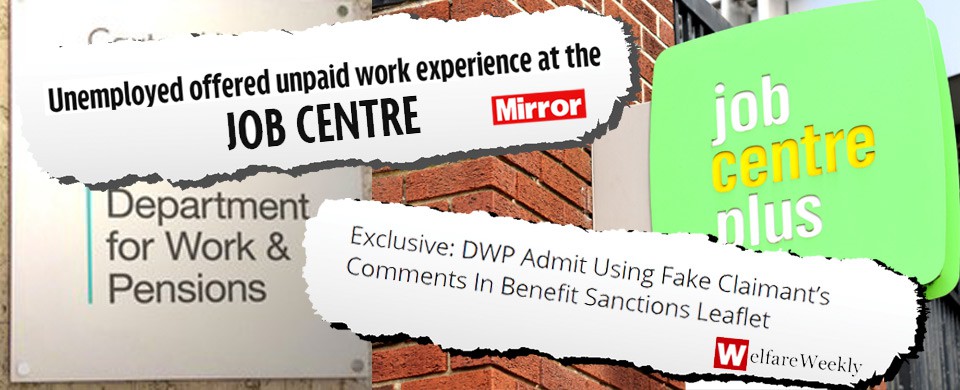Why we must value the truth and pay people properly to communicate it
You couldn’t make it up, they say. But it seems some people can and do make things up, and then act out a contrasting, unpalatable reality.
One minute the Department for Work and Pensions (DWP) was inventing positive stories about the effects of benefit sanctions, the next it was accused of pressurising unemployed people to work for nothing to gain ‘experience’ in its own Job Centres.
The DWP’s use of fake quotes and stock photos on an information leaflet that has now been withdrawn was roundly condemned by the Chartered Institute of Public Relations (CIPR) as soon as it was exposed by Welfare Weekly two weeks ago.
CIPR President Sarah Pinch said: “Falsely creating the impression of independent, popular support is a naïve and opaque technique which blatantly disregards the CIPR’s standards of ethical conduct. It is deeply disappointing if public relations professionals allowed it (the leaflet) to be published.”
Only a day or so later, the Daily Mirror ran a report saying unemployed benefits claimants were being ‘offered’ full time unpaid work by the DWP.
People who sign on at one Job Centre in north London told the newspaper they were worried that they might lose their housing and unemployment benefits if they refuse.
But the DWP said that was ‘ludicrous’ and denied that free work by benefits claimants would be used to fill gaps caused by cuts in paid staff.
The two stories left an Orwellian aftertaste. There was more than a hint of the Ministry of Truth about the fake leaflets, and it’s hard to see – in an environment where sanctions are applied – how the DWP’s offer of unpaid work comes without an unspoken threat.
As an employer, I struggle with the concept of work experience at the best of times. Freshwater has always done its bit to provide sixth formers and students on relevant courses with an opportunity to spend a week or two in a real working environment.
However, it doesn’t usually take many days for them to start undertaking useful tasks, placing the question of payment on the agenda. That’s why we put a time limit on work experience and pay graduate interns from the word go.
But, sadly, many employers in our industry continue to take advantage of young people. Of more than 350 members of the PRCA, the body representing larger consultancies, only 144 of us have signed the register committing to pay interns at least the minimum wage.
Five of the top 20 agencies in the UK do not appear on it, including leading industry brands Brunswick, FTI Consulting and Finsbury.
But even the PRCA register, while a positive initiative, does not go far enough. The Living Wage Foundation, which has cross-party support, argues that the hourly rates needed to ‘make ends meet’ are £9.15 in London and £7.85 outside, rather than the official minimum of £6.50 at 21.
George Osborne announced in the Summer Budget that a new ‘living wage’ will be introduced next April, but this will only be £7.20 an hour and apply to people aged 25 and over. The Chancellor was using the term as a political toy rather than actually performing a major U turn.
The CIPR’s policy, which Freshwater supports, is that interns should be paid ‘at least’ the Living Wage Foundation’s rates. The argument that this would be a job-destroying ‘burden’ on business is just a smokescreen for those who want to carry on under-cutting more ethical competitors.
But there are implications for clients too. The CIPR believes that not paying the Living Wage ‘denies access to the profession to certain socio-economic groups’. In other words, if you don’t pay interns properly, you will only attract rich kids whose parents can afford to subsidise them.
This should matter to those who buy PR services because they are less likely to get the best advice if they are using agencies staffed by people who are not representative of the audiences they are trying to reach.
It is really bizarre that anyone would even contemplate purchasing services from agencies that provide them with staff who are not paid properly or at all.
When they do, it devalues all of us. Bad practices such as not paying interns and making up case studies blight the whole profession.
Steve Howell is chief executive of Freshwater UK. A version of this article first appeared in the Western Mail and on Walesonline on Monday 31 August. Steve is also the author of the novel, Over The Line, which is on sale at most bookshops and on Amazon. Follow him on Twitter: @FromSteveHowell
Photo credit: Shutterstock / Lucian Milasan

